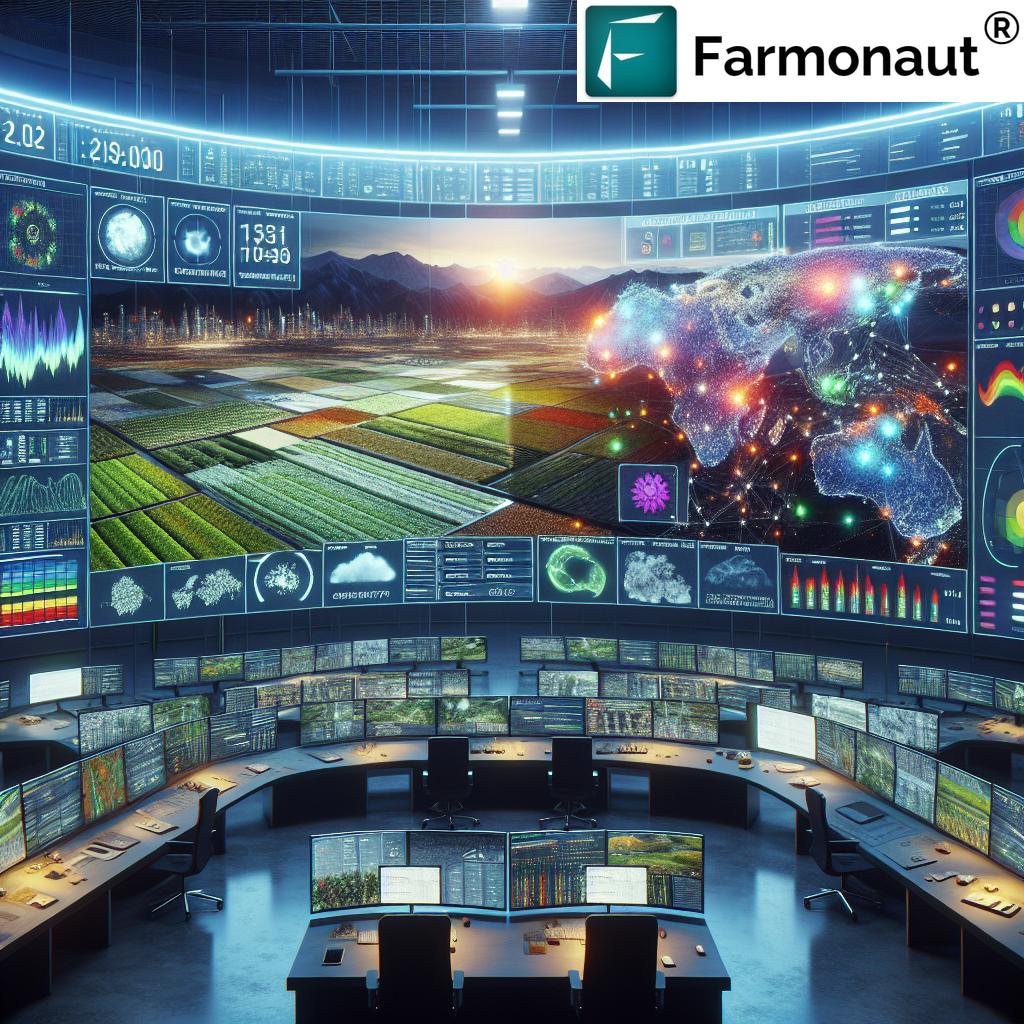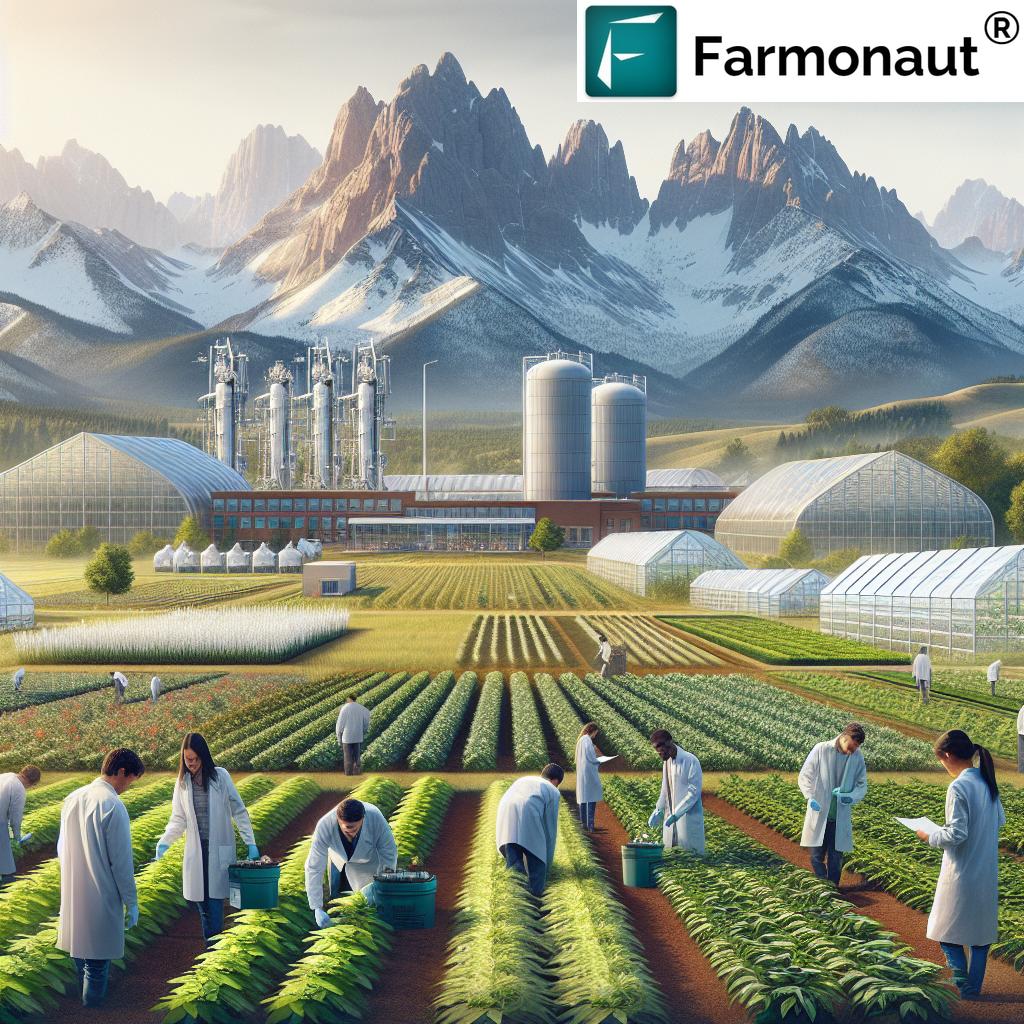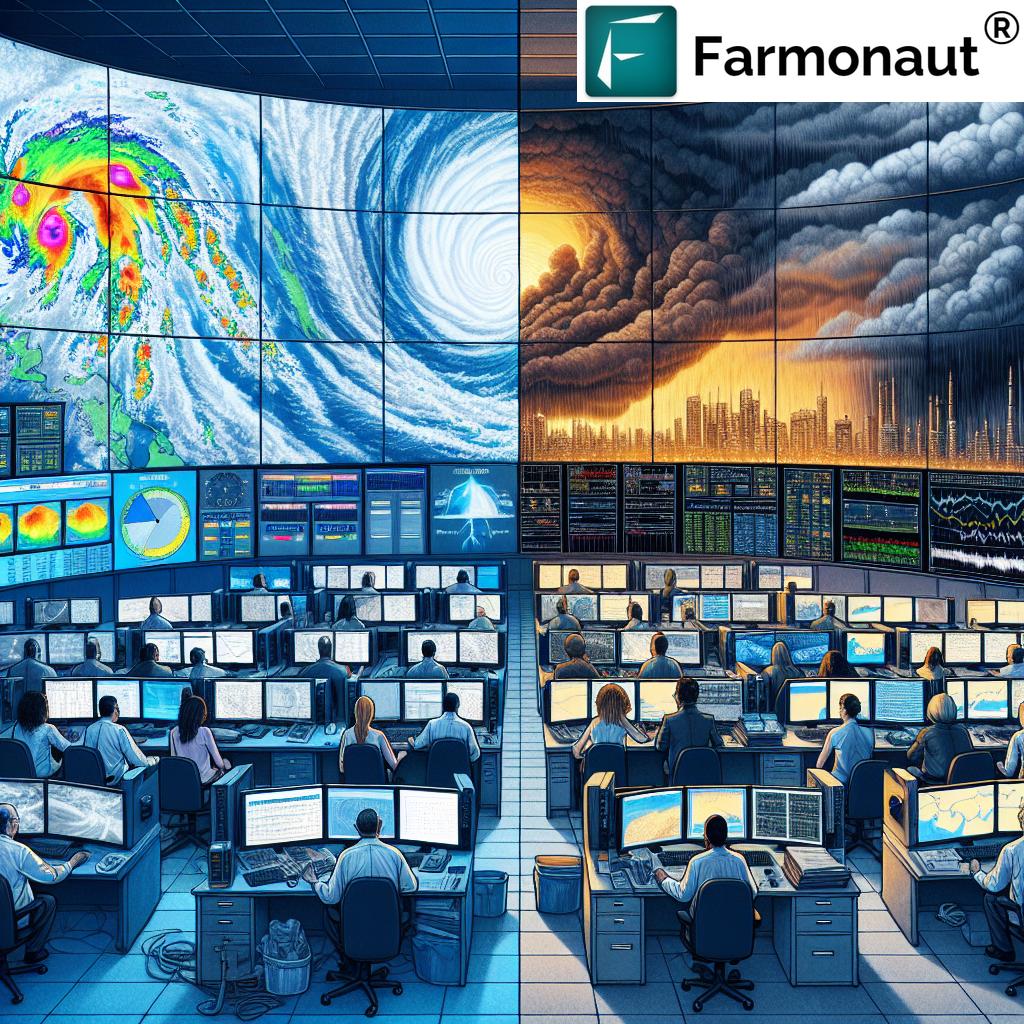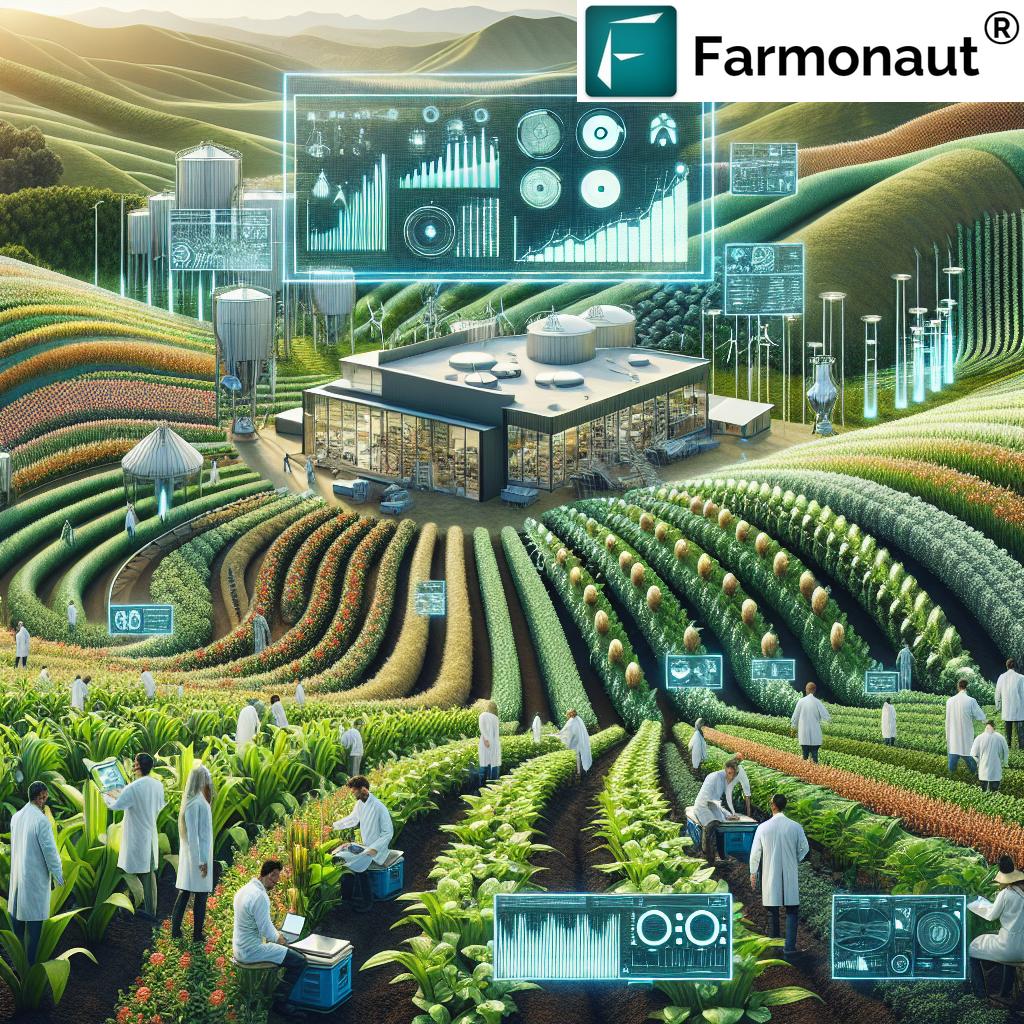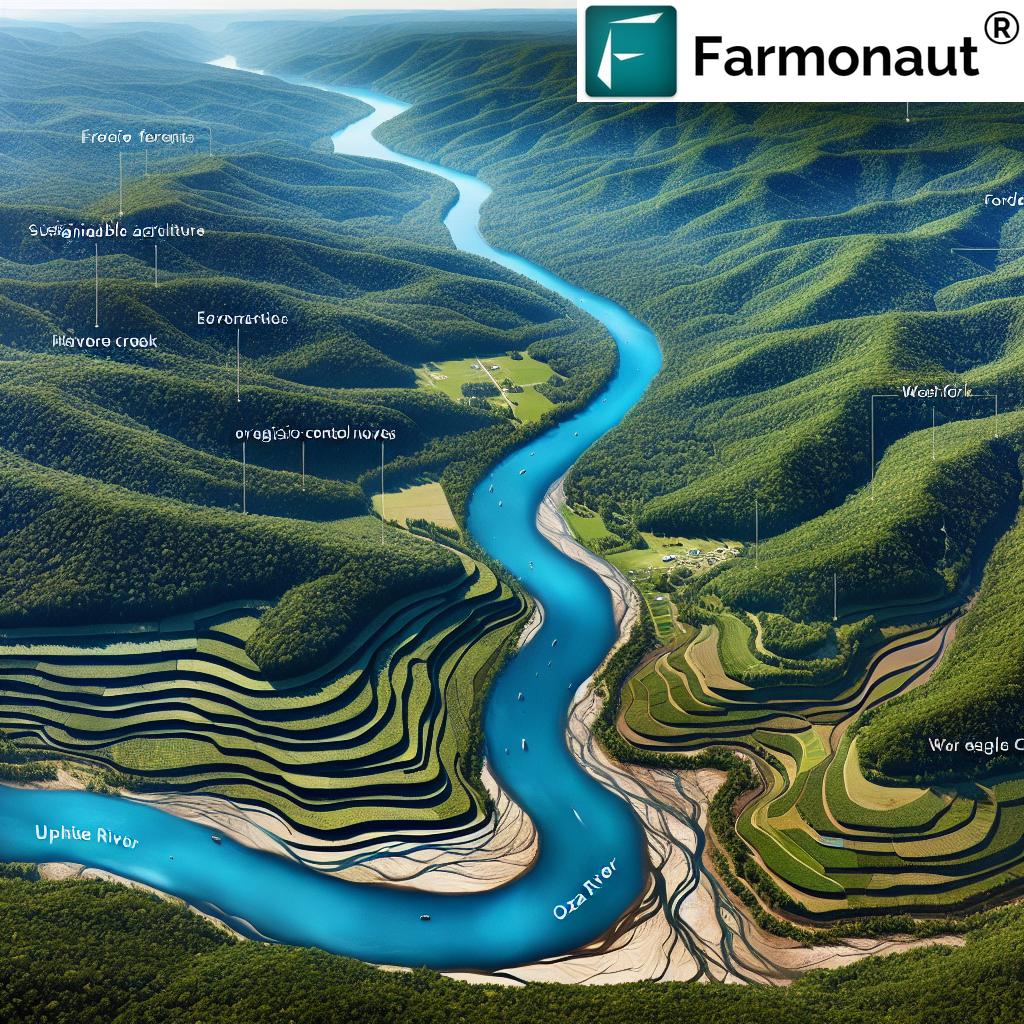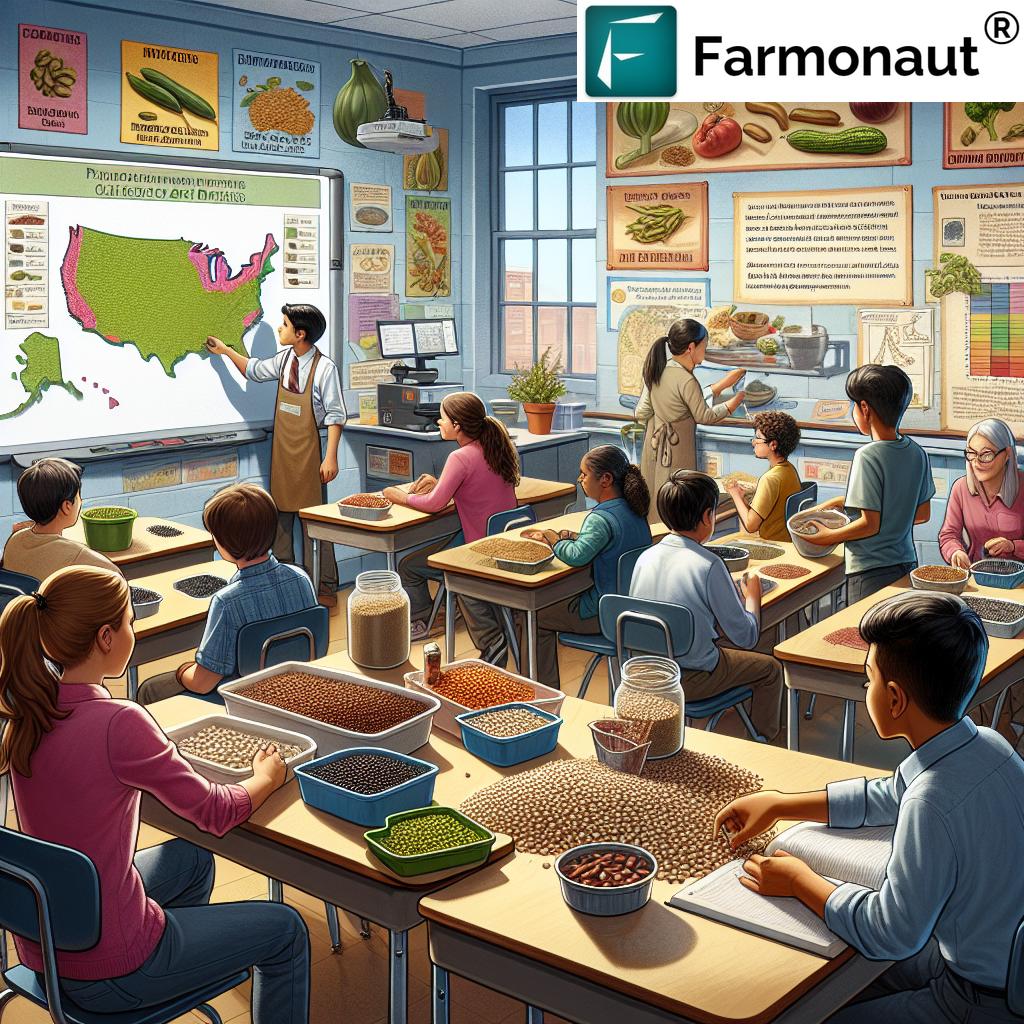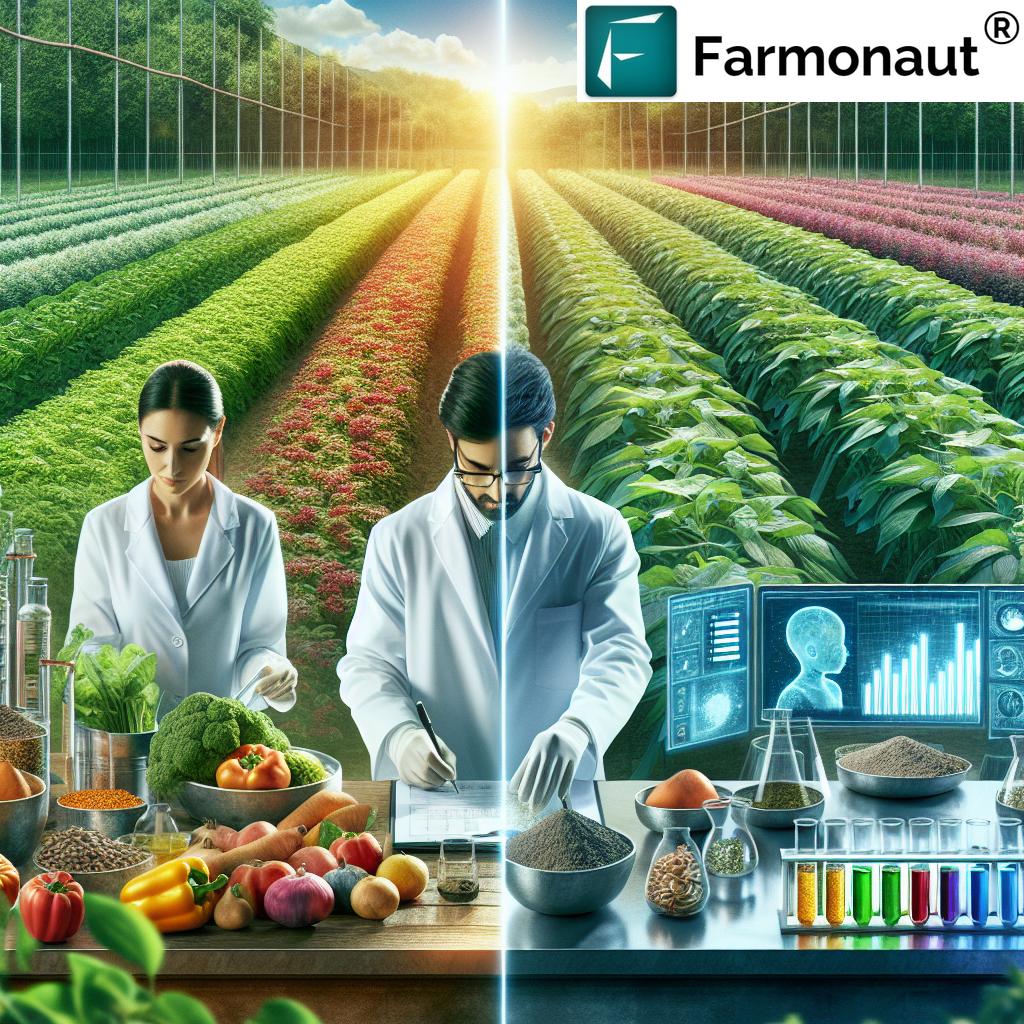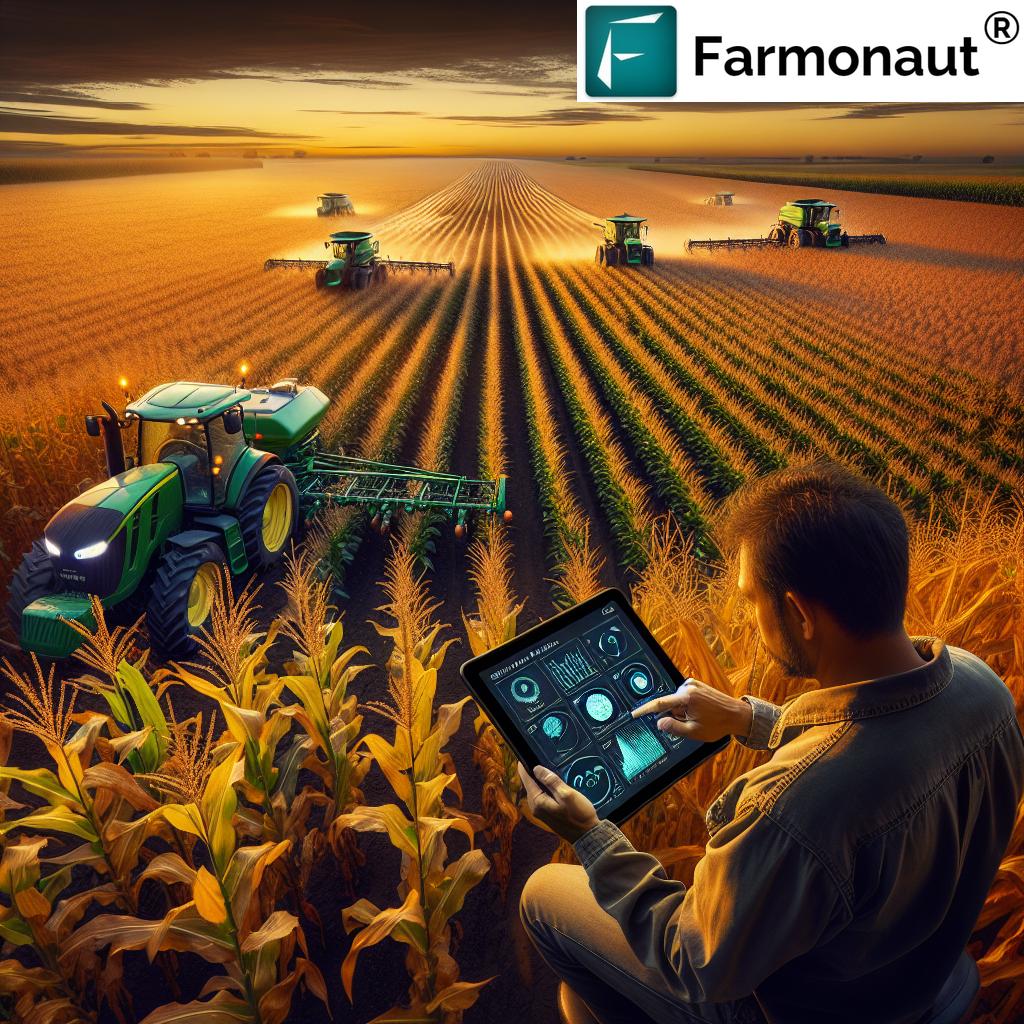Revolutionizing Sustainable Agriculture: Farmonaut’s Innovative Solutions for Virginia’s Environmental Compliance
“Farmonaut’s GIS technology has revolutionized sustainable crop management for over 10,000 acres of farmland in Virginia.”
In the ever-evolving landscape of agriculture, we find ourselves at the forefront of a green revolution. As we delve into the world of sustainable farming practices and environmental compliance, it’s crucial to understand how innovative agritech solutions are reshaping the industry. Today, we’ll explore how cutting-edge technologies are transforming waste management, soil health, and overall agricultural operations in Virginia and beyond.
The Shifting Paradigm in Agricultural Waste Management
Sustainable waste management has become a cornerstone of modern agriculture, particularly in regions like Virginia where environmental regulations are becoming increasingly stringent. The recent acquisition of Clearfield MMG, LLC by VLS Environmental Solutions, LLC marks a significant milestone in this sector’s evolution.
This strategic move not only expands VLS’s geographic footprint into the mid-Atlantic region but also underscores the growing importance of specialized treatment and waste disposal solutions in agriculture. With Clearfield’s three waste management facilities in Virginia now under VLS’s portfolio, we’re witnessing a consolidation of expertise that promises to deliver more comprehensive and innovative environmental solutions.
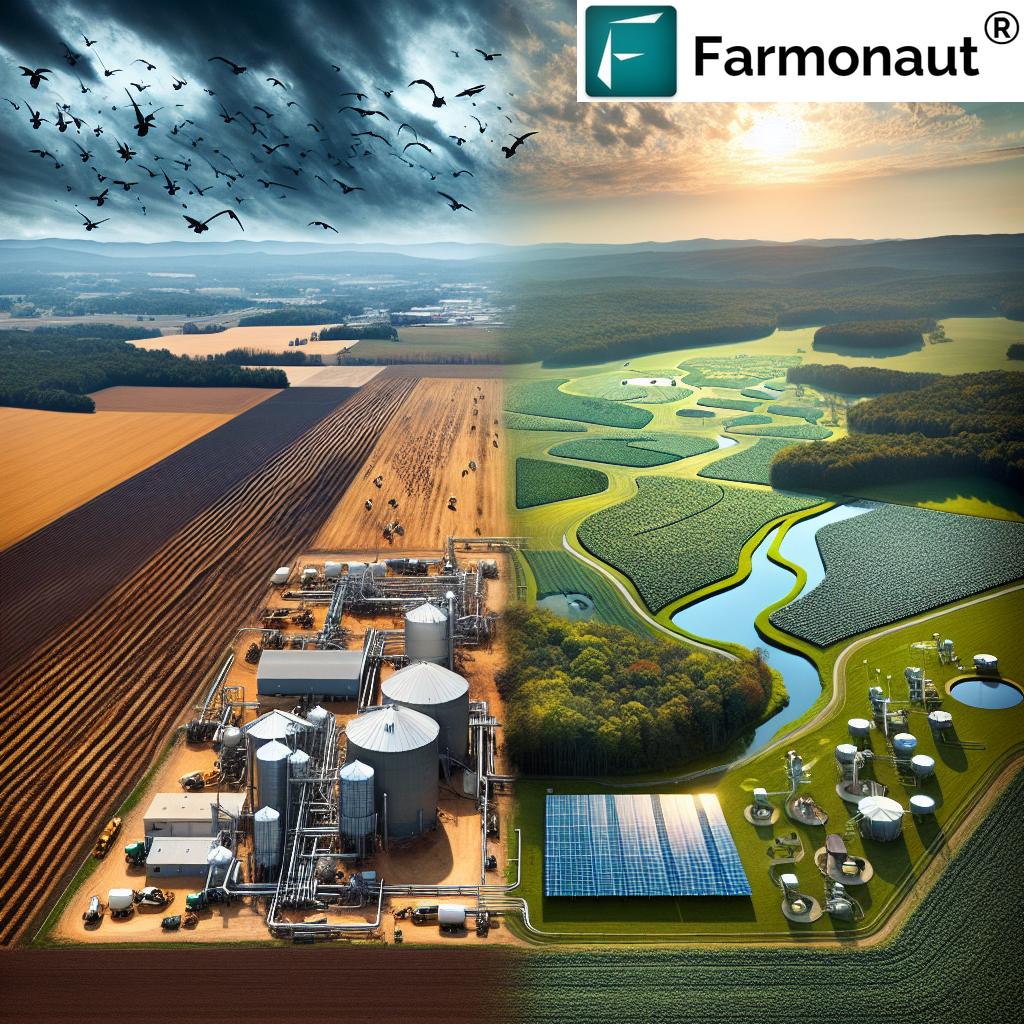
Innovative Agritech Solutions: The Farmonaut Advantage
While traditional waste management practices are evolving, parallel advancements in agritech are revolutionizing how we approach sustainable agriculture. At the forefront of this innovation is Farmonaut, a pioneering agricultural technology company that’s changing the game with its satellite-based farm management solutions.
Farmonaut’s platform integrates cutting-edge remote sensing and GIS technology to offer farmers powerful tools for sustainable crop management. By leveraging satellite imagery and artificial intelligence, Farmonaut provides real-time insights into crop health, soil moisture levels, and other critical metrics that enable farmers to make informed decisions about resource allocation and environmental stewardship.
Explore Farmonaut’s innovative solutions:
Key Features of Farmonaut’s Technology:
- Satellite-Based Crop Health Monitoring
- AI-Driven Advisory System (Jeevn AI)
- Blockchain-Based Product Traceability
- Fleet and Resource Management Tools
- Carbon Footprint Tracking
These features not only enhance farm productivity but also align perfectly with Virginia’s push for environmental compliance in agriculture. By providing farmers with the tools to monitor and optimize their operations, Farmonaut is playing a crucial role in promoting sustainable farming practices across the region.
The Intersection of Waste Management and Precision Agriculture
As we consider the implications of the Clearfield MMG acquisition and the rise of agritech solutions like Farmonaut, it’s clear that the future of sustainable agriculture lies at the intersection of efficient waste management and precision farming techniques.
“Environmental compliance solutions in agriculture have reduced waste by 30% across Virginia’s farming sector since 2020.”
This reduction in waste is a testament to the power of innovative solutions in transforming agricultural operations. Let’s explore how these advancements are working in tandem to create more sustainable and compliant farming practices:
1. Advanced Waste Processing and Disposal
Companies like VLS and Clearfield MMG are pioneering new methods for processing and disposing of agricultural waste. These techniques not only reduce the environmental impact of farming operations but also create opportunities for recycling and reuse of materials.
2. Soil Excavation and Remediation
Innovative soil excavation techniques are allowing farmers to address contamination issues more effectively. This is particularly crucial in areas where historical farming practices may have led to soil degradation or pollution.
3. Compliance Monitoring
With stricter environmental regulations in place, compliance monitoring has become a critical aspect of modern farming. Advanced sensors and data analytics tools are enabling real-time tracking of various environmental parameters, ensuring that farms stay within regulatory limits.
4. Precision Resource Management
Farmonaut’s satellite-based solutions are at the forefront of precision agriculture, allowing farmers to optimize their use of water, fertilizers, and pesticides. This not only reduces waste but also minimizes the environmental impact of farming activities.
Discover Farmonaut’s precision agriculture tools:
The Role of Technology in Environmental Compliance
As we delve deeper into the realm of environmental compliance in agriculture, it’s evident that technology plays a pivotal role. The integration of innovative solutions is not just a trend but a necessity for farms aiming to meet and exceed regulatory standards.
Satellite Imagery and Remote Sensing
Farmonaut’s use of satellite imagery and remote sensing technology is particularly noteworthy in this context. By providing farmers with a bird’s-eye view of their operations, these tools enable:
- Early detection of potential compliance issues
- Efficient monitoring of large agricultural areas
- Data-driven decision making for resource allocation
- Reduction in the need for on-site inspections
Explore Farmonaut’s API for developers:
Farmonaut Satellite & Weather API
AI-Powered Advisory Systems
The Jeevn AI system developed by Farmonaut represents a significant leap forward in agricultural advisory services. By analyzing vast amounts of data, including satellite imagery, weather patterns, and historical farm performance, Jeevn AI can provide tailored recommendations that help farmers:
- Optimize crop yields while minimizing environmental impact
- Anticipate and mitigate potential compliance risks
- Implement best practices for sustainable farming
- Adapt to changing environmental conditions and regulations
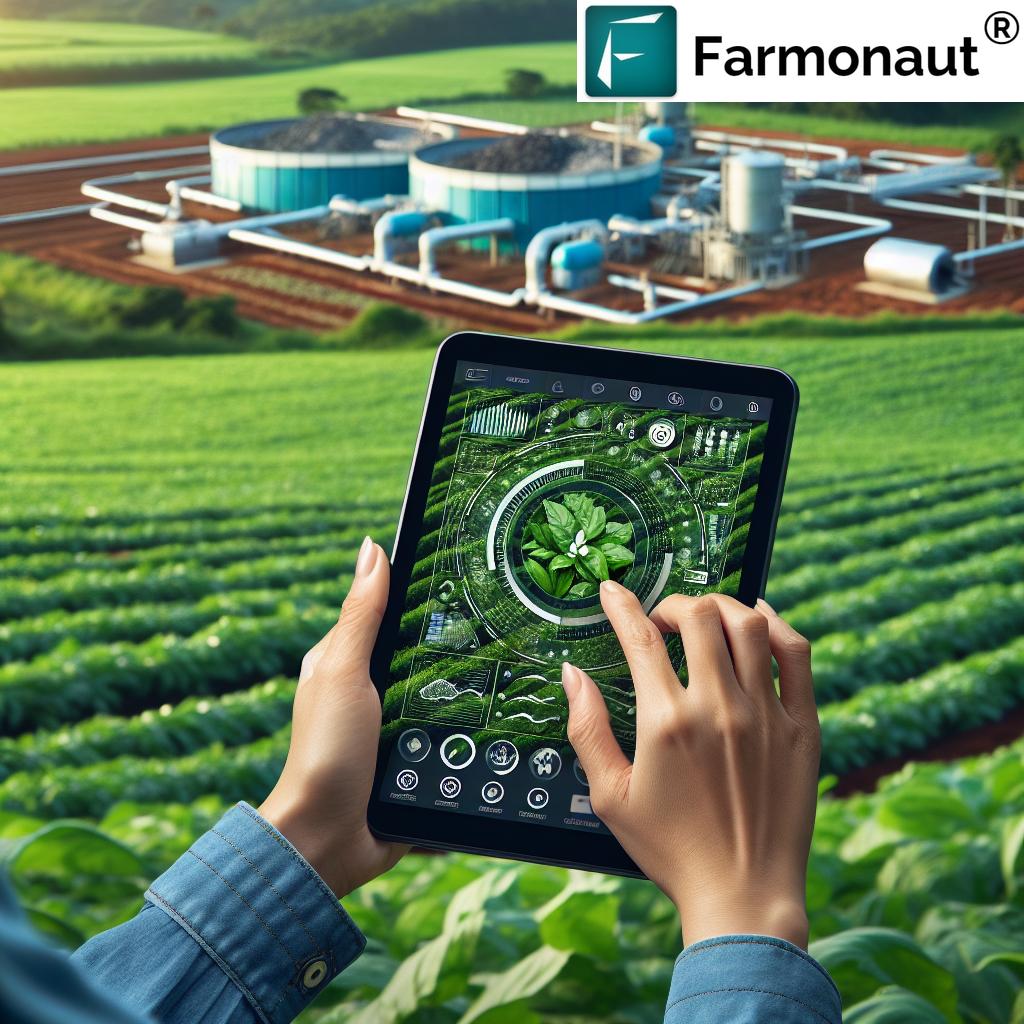
The Future of Sustainable Agriculture in Virginia
As we look to the future of agriculture in Virginia, it’s clear that the integration of advanced waste management techniques and innovative agritech solutions will play a crucial role in shaping a more sustainable and compliant industry. The acquisition of Clearfield MMG by VLS Environmental Solutions signals a growing recognition of the importance of specialized environmental services in the agricultural sector.
Meanwhile, companies like Farmonaut are pushing the boundaries of what’s possible with precision agriculture and environmental monitoring. By providing farmers with powerful, data-driven tools, these technologies are enabling a new era of sustainable farming that aligns closely with Virginia’s environmental goals.
Comparative Analysis of Sustainable Agriculture Technologies
To better understand the landscape of innovative solutions in sustainable agriculture, let’s examine a comparison of various technologies currently shaping the industry:
| Technology | Primary Function | Environmental Impact | Compliance Monitoring | Waste Management Efficiency | Geographic Coverage | Estimated Market Share | Key Benefits |
|---|---|---|---|---|---|---|---|
| Farmonaut’s Remote Sensing and GIS | Crop health monitoring, resource optimization | Low | Yes | 85% | Global | 15% | Real-time insights, precision agriculture |
| Advanced Waste Processing Systems | Agricultural waste treatment | Medium | Yes | 90% | Regional | 20% | Efficient waste reduction, recycling potential |
| Soil Excavation Techniques | Soil remediation and management | Medium | Yes | 75% | Regional | 10% | Contamination mitigation, soil health improvement |
| Precision Agriculture Tools | Resource allocation optimization | Low | Yes | 80% | Global | 25% | Reduced input costs, increased yields |
| Sustainable Crop Management Solutions | Integrated pest and nutrient management | Low | Yes | 70% | National | 18% | Reduced chemical use, improved crop resilience |
This comparison highlights the diverse range of technologies available to farmers and agricultural businesses. Farmonaut’s solutions stand out for their global coverage, high waste management efficiency, and the key benefits of real-time insights and precision agriculture capabilities.
Access Farmonaut’s innovative solutions on iOS:
The Economic Impact of Sustainable Agriculture
The shift towards sustainable agriculture and environmental compliance is not just an ecological imperative; it also has significant economic implications. The merger and acquisition activity in the sector, as exemplified by the Clearfield MMG transaction, underscores the financial value placed on companies that provide innovative environmental solutions.
Key Economic Factors:
- Cost Savings: Precision agriculture tools like those offered by Farmonaut can lead to substantial cost savings for farmers through optimized resource use.
- New Revenue Streams: Sustainable practices can open up new markets and revenue streams, such as carbon credits or premium pricing for environmentally friendly products.
- Investment Attraction: Companies that demonstrate strong environmental performance are increasingly attractive to investors and financial institutions.
- Risk Mitigation: Compliance with environmental regulations reduces the risk of fines and legal issues, protecting farms’ financial stability.
The Role of Policy and Regulation
The push for sustainable agriculture and environmental compliance in Virginia is not happening in a vacuum. It’s supported by a framework of policies and regulations designed to encourage responsible farming practices and protect the environment. Understanding these regulations is crucial for farmers and agribusinesses looking to thrive in this new landscape.
Key Regulatory Considerations:
- Nutrient Management Plans
- Soil and Water Conservation Requirements
- Pesticide Application Regulations
- Waste Management and Disposal Guidelines
- Emissions and Air Quality Standards
Technologies like Farmonaut’s remote sensing and GIS solutions can play a crucial role in helping farmers navigate these regulatory requirements. By providing real-time data and insights, these tools enable proactive compliance management and help farmers stay ahead of evolving regulations.
The Global Context: Virginia’s Role in Sustainable Agriculture
While our focus has been on Virginia, it’s important to understand that the state’s efforts in sustainable agriculture and environmental compliance are part of a global movement. Virginia’s farmers and agribusinesses have the opportunity to lead by example, showcasing how innovative technologies and sustainable practices can be successfully implemented on a regional scale.
Farmonaut’s global reach and scalable solutions position it as a valuable partner in this effort, enabling Virginia’s agricultural sector to connect with and learn from sustainable farming initiatives worldwide.
Farmonaut Subscription Options
To support farmers and agribusinesses in their journey towards sustainable agriculture, Farmonaut offers a range of subscription options tailored to different needs and scales of operation:
Frequently Asked Questions
Q: How does Farmonaut’s technology contribute to environmental compliance in agriculture?
A: Farmonaut’s satellite-based monitoring and AI-driven advisory systems help farmers optimize resource use, reduce waste, and maintain compliance with environmental regulations by providing real-time insights into crop health and environmental conditions.
Q: What are the benefits of using remote sensing in agriculture?
A: Remote sensing enables large-scale monitoring of crop health, soil moisture, and other key agricultural parameters without the need for extensive on-ground sensors. This technology provides timely, accurate data that helps farmers make informed decisions about resource allocation and crop management.
Q: How does sustainable agriculture impact the local economy in Virginia?
A: Sustainable agriculture practices can lead to cost savings for farmers, open up new markets for environmentally friendly products, attract investment, and create jobs in the agritech and environmental services sectors, contributing to overall economic growth in Virginia.
Q: What role does waste management play in sustainable agriculture?
A: Effective waste management is crucial for reducing the environmental impact of agriculture. It helps prevent soil and water pollution, reduces greenhouse gas emissions, and can create opportunities for recycling and generating additional value from agricultural byproducts.
Q: How can farmers in Virginia get started with precision agriculture technologies?
A: Farmers can begin by exploring platforms like Farmonaut, which offer user-friendly apps and web interfaces to access satellite-based crop monitoring and advisory services. Many of these platforms offer free trials or basic plans to help farmers get started with minimal investment.
Conclusion: A Sustainable Future for Virginia’s Agriculture
As we’ve explored throughout this article, the landscape of agriculture in Virginia is undergoing a significant transformation. The convergence of innovative waste management solutions, as exemplified by the Clearfield MMG acquisition, and cutting-edge agritech platforms like Farmonaut, is paving the way for a more sustainable and environmentally compliant agricultural sector.
By embracing these technologies and practices, Virginia’s farmers and agribusinesses are not only meeting current environmental standards but are also positioning themselves at the forefront of the global sustainable agriculture movement. The benefits of this shift extend beyond environmental protection, encompassing economic advantages, improved resource management, and enhanced farm productivity.
As we look to the future, it’s clear that the continued integration of advanced technologies, data-driven decision-making, and sustainable practices will be key to ensuring the longevity and success of Virginia’s agricultural industry. With companies like Farmonaut providing accessible and powerful tools for precision agriculture, and environmental services firms expanding their capabilities, Virginia’s farmers are well-equipped to meet the challenges and opportunities of sustainable farming in the 21st century.
The revolution in sustainable agriculture is not just about compliance; it’s about creating a resilient, efficient, and environmentally responsible farming sector that can thrive for generations to come. As we continue to innovate and adapt, Virginia’s agricultural community is poised to lead the way in this green revolution, setting an example for sustainable farming practices across the nation and around the world.






